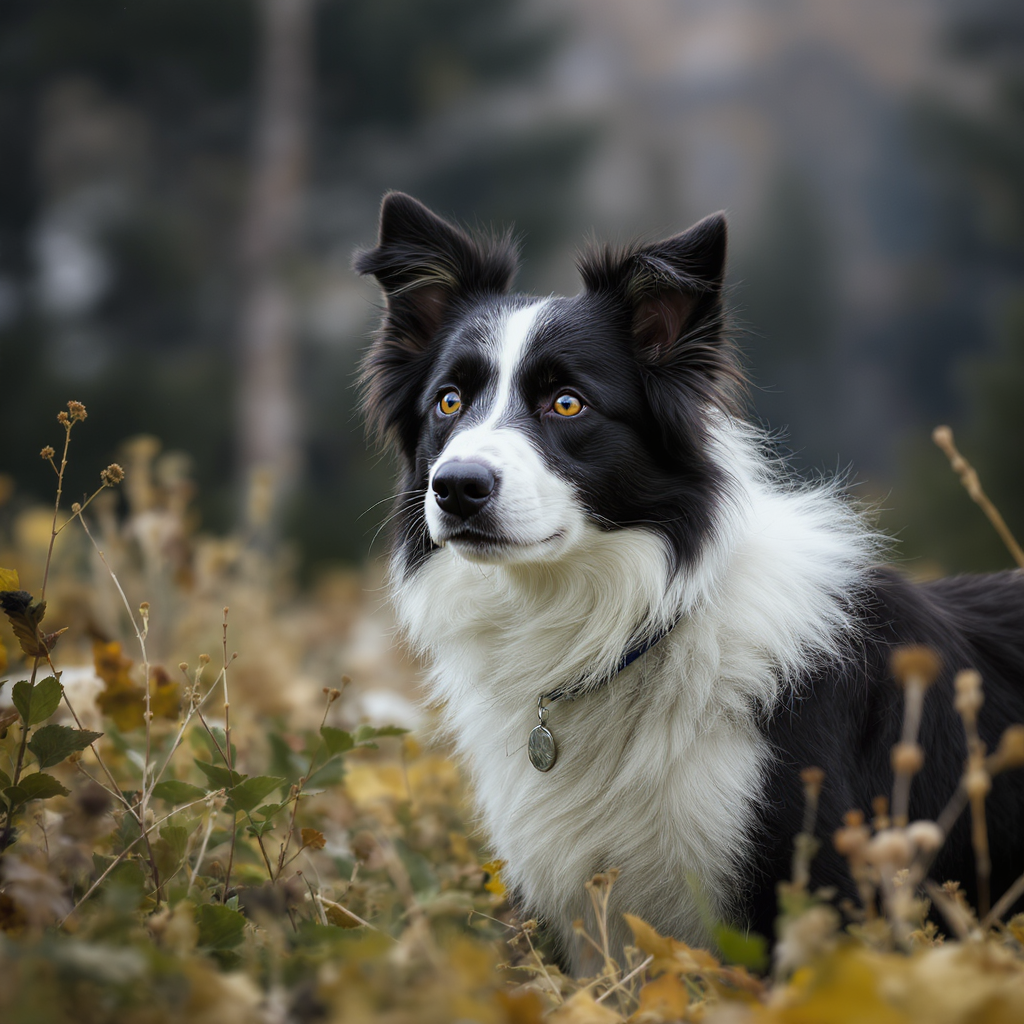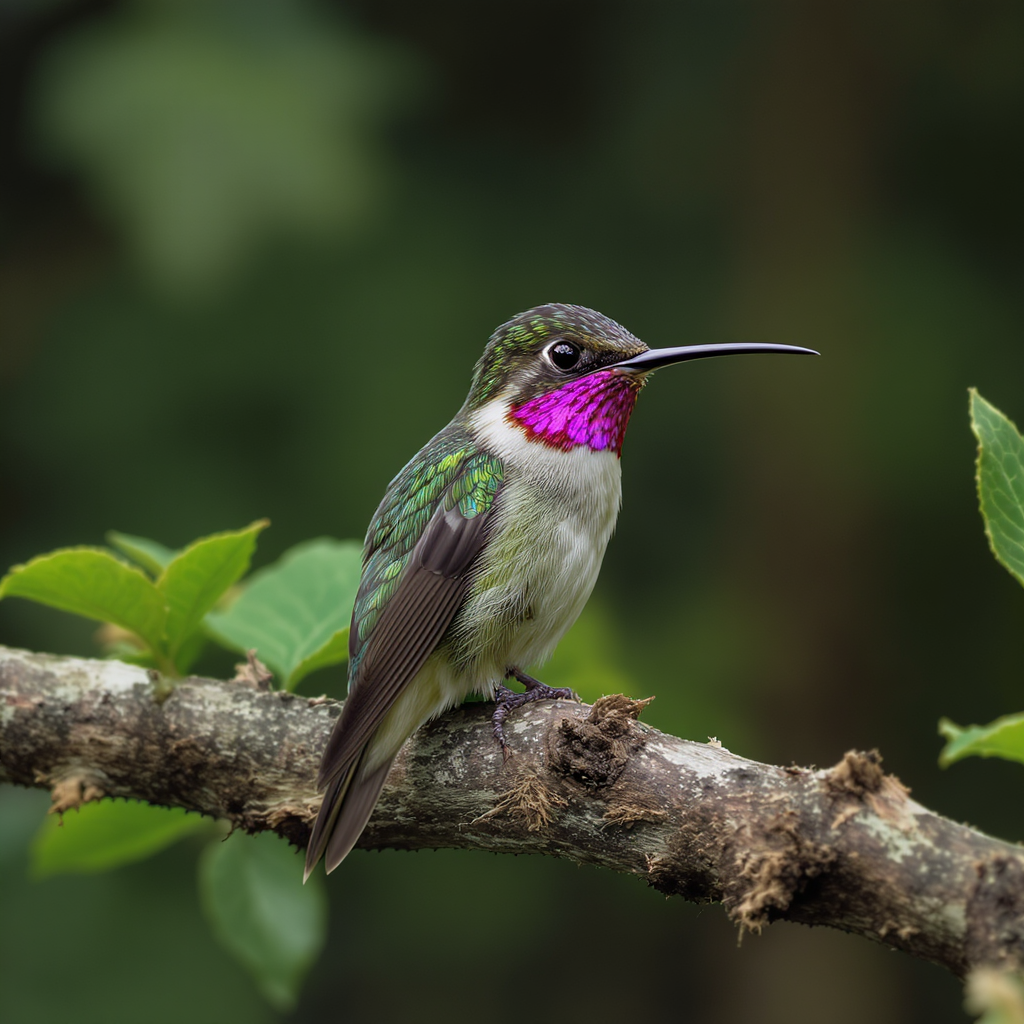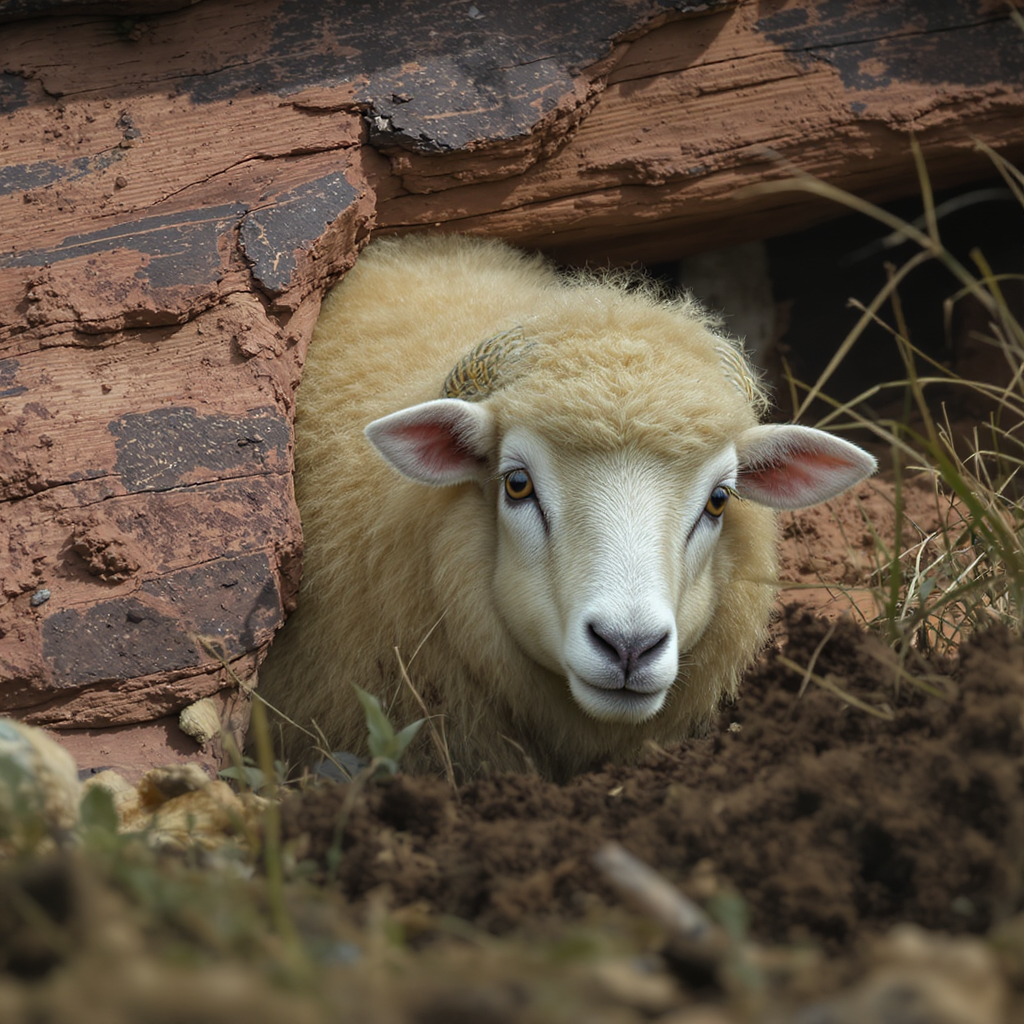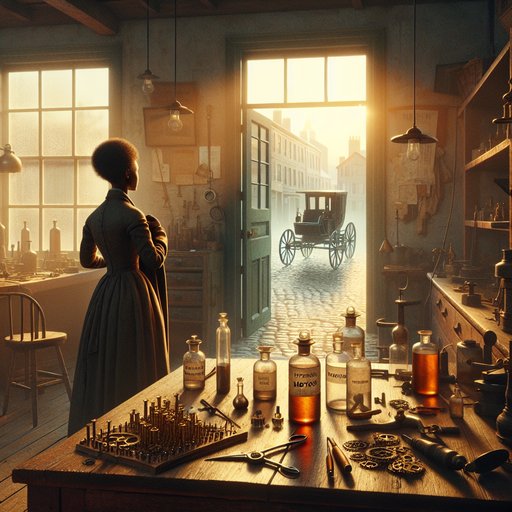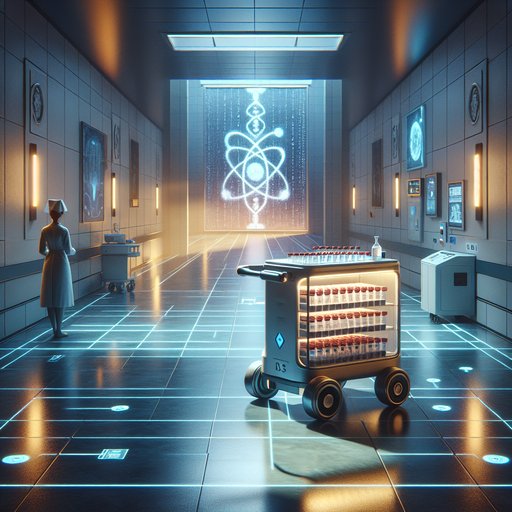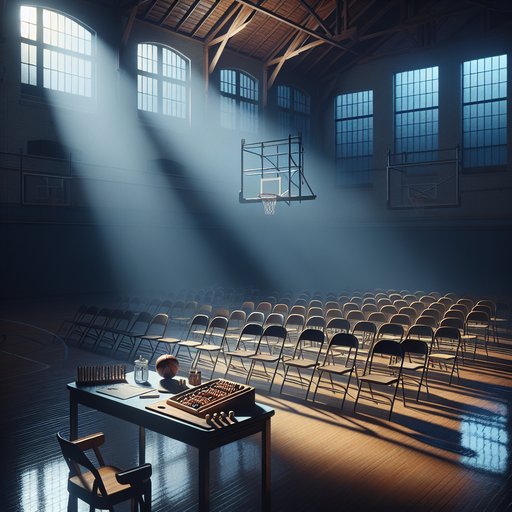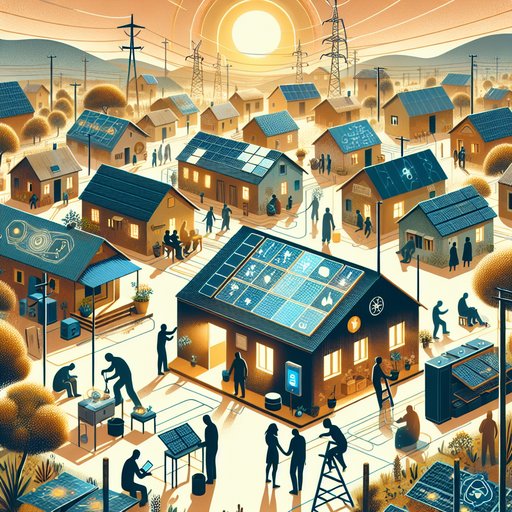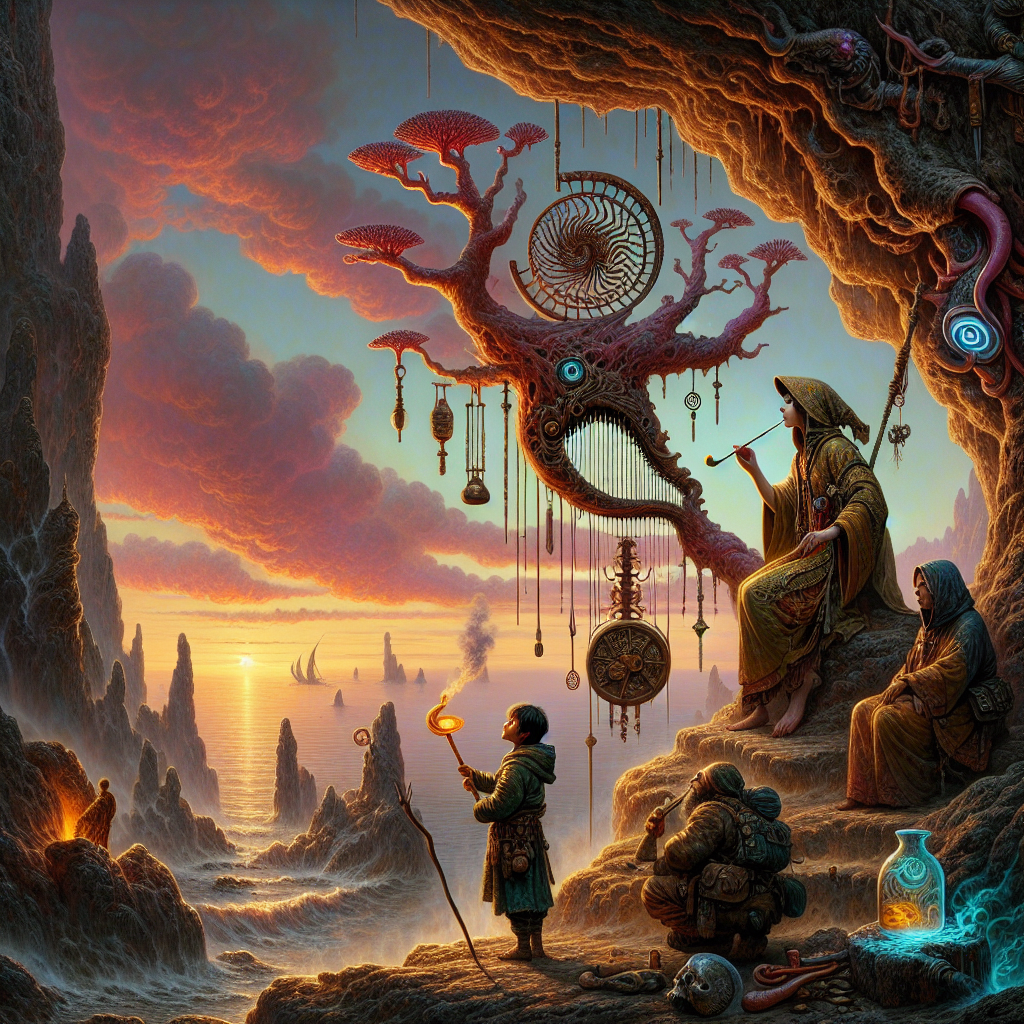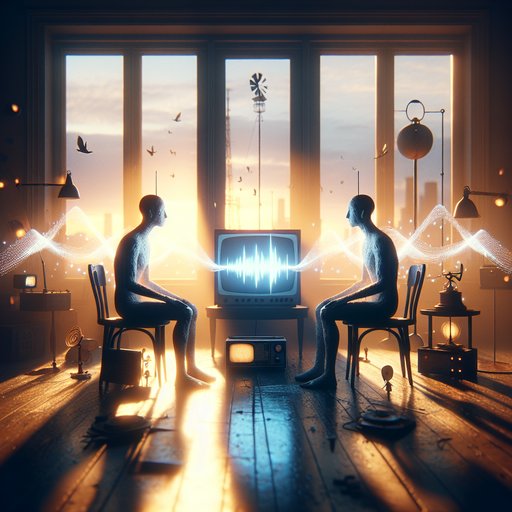
Before they ever touched, they learned the shape of each other's silences. In the co-op world of a quiet game where you tune radios instead of shooting anything, two strangers begin to build a country made of habits—late-night hums, playlists, an endless line of in-game lighthouses. When they finally decide to cross the distance between pixels and skin, the world outside the screen is less forgiving. But the frequencies they’ve taught each other to hear don’t stop at the edge of the monitor.
The first time I hear his name it is not a name, just a handle bobbing up in the corner of my screen: KestrelNorth has joined your instance. The skies over the salt flats of Long Quiet are a deep bruise blue, and there’s a wind sound that makes the hair on my arms lift because it’s coded to mimic the breath you think you’ve stopped holding. I’m stuck at a rusted gate that will only open if you hum the right chord. The small circle next to his name blinks; he’s using the default avatar—hands stuffed in a too-big coat, scarf snapping behind.
He pings me, two quick taps that show up as ripples on the cracked ground. u stuck? he types, and I type back, i like it up here. He’s patient as I fumble the chord, restarting the signal again and again until the gate shudders and rises.
He doesn’t turn on voice; I don’t either. Our avatars stand side by side and stare at a sun the color of an apricot. He drops a flare in a little spiral at my feet, the in-game equivalent of a smile. We keep finding each other without agreeing to, like the way you take the same seat on the bus without thinking.
A storm rolls across the dunes and we shelter in a satellite dish, metal ringing like a bell. By the third night he’s sending me his playlist for ruin and repair: cello pieces that feel like cliffs, a guitar song too clean and bright to be sad. We move from the game’s clunky text to a private channel. The first time he speaks, the mic cracks, and then there it is: the river-quiet of his voice.
In the background a kettle stutters. He apologizes, then apologizes for apologizing. I picture a yellow kitchen, a window with plants. He refuses my request to go on camera; I refuse his.
We agree to trade edges instead: photos of hands, not faces—his ink-streaked palm after marking his little brother’s math homework; my fingers stained blue from mixing paints for a client’s sign. We finish towers by breathing together into a chord. It should be ridiculous, singing at metal, but when the gate opens it feels like we’ve been understood by something larger than us. Long Quiet acts like a third room in our apartment, except neither of us lives together or even knows what the other’s apartment looks like.
He says he’s in the north end, two trains and a bus away if he’s not careful. I say I’m closer to the river, where the air tastes like cold coins in winter. He sends me a link to a video about a moth that can hear the frequencies of bats higher than any other creature, and we decide the little glitches in the game—the birds that sometimes fly through walls, the way the aurora snaps off and on like bad fluorescent lighting—are moths finding us. When my insomnia drops me to the floor at 3 AM, he is there, bright dot on my friend list.
He doesn’t fill the silence with questions; he just moves, checks the map, says, there’s a lighthouse we missed south of Slate City. We spend an hour scavenging, our avatars’ coats slapping as we run. For the first time in months, the night feels useful. He tells me he works afternoons at a community center and mornings in a convenience store and evenings at everything that doesn’t fit around those two.
Is that… a lot? I ask, not wanting to push. A laugh crackles through like a record. Some days.
It’s better when Ari falls asleep early. I ask who Ari is and he says, my little brother; he likes to keep dragons under his pillow. We become those people who say good morning at ten PM. He teaches me to fold an origami moth so small it disappears on my palm; I mail it to a post office box he rents because the lock on his building’s front door sticks and packages go missing.
He sends me a book with pages creased not like anyone else’s creases, because the dog-ears climb from the bottom corner, a mishap he shrugs off with an audio smile. The game updates in early spring and resets half the radios; we sigh like parents whose toddlers have scattered flour across the kitchen. He jokes that some part of him refuses to exist outside places with maps. When I ask why he doesn’t leave the city, he says leaving would require more doors to hold open for Ari.
It is not pity that skims me, exactly; it’s gravity. Responsibility is just a nicer word for weight, and he carries his like it grew there. He never tells me his real name, only Theo once, soft and casual and then regretful, as if he’s given me his house key by mistake. I say mine, Mira, and it sits between us like a new object in the room—shiny, delicate, a thing you want to keep touching until it’s smudged with prints.
In May the sky opens up and pours violent rain, and then he is gone. Not gone from the friend list, just dimmed, like someone has turned down the brightness on his dot. Messages like stones slipped into a river, disappearing without ripples. I tell myself it’s nothing—finals week at the center, inventory at the store—but the night expands around where he usually is.
I walk my avatar to the end of the map and discover that you can watch the digital sea and feel real nausea, because it keeps moving and you can’t stop it. I don’t sleep. When he pings me three days later, I nearly cry at the little ripple. Sorry, he says.
It was… here. Everything was here. A pause, a breath that isn’t mine. Mom—her bad days came in a set.
Ari wouldn’t go to school unless I stayed. You didn’t need all of that. My mic flips on before I can choose. It’s okay, I say, though we both know it isn’t the point.
You can put down the weight in here, a little. Do you have time to build a greenhouse? It’s a dumb joke; Long Quiet has no plants, just satellites and ice. He laughs and we stand on a rooftop we’ve never found before, and for a while we just listen to the static break into softer static.
It’s his idea to meet, though it arrives like an accident. The developers announce a pop-up listening room, a gallery side-project where they’re installing a room of radios and speakers that respond to humming like in the game. Two weekends only. The map location drops: two stops from me; something like a world away from him.
We hedge. We send each other times we might go and then send each other the real times, the ones that don’t require pretending we aren’t a little afraid. We go on a call and agree to a sign. An orange scarf, I say—burnt orange, the color of the sun they always render when the server’s lagging.
He says he’ll wear it. He says he’ll bring the moth I mailed him and he’ll tuck it into the rim of his cap so it can watch us. We don’t change our avatars’ clothes, superstitious. We don’t turn on our cameras, also superstitious.
We leave the meeting time there, pinned, like a note on a refrigerator you can’t ignore forever. The day of, I turn off every screen in the apartment and my hands still ache as if I’ve been typing for hours. Blue light hovers on the walls even when it’s gone. Outside the air is honey; the first true summer evening, an apology for the winter’s sting.
The gallery is in a former post office with tile floors worn to satin. People mill with drinks, clumps of laughter breaking open like tossed glass marbles. In the radio room a chandelier of speakers hangs in a ring, cords braided into a spine. A woman hums a low F and the central speaker thrums under my ribs.
My phone is less discreet than I want it to be, lighting up with his message: at the door. I wipe my palms on my jeans. I stand under the chandelier. I look at everyone’s necks, everyone’s hands.
A flash of burnt orange at the doorway; the scarf is exactly the wrong color, loud enough to be seen from space. He lifts his chin, hesitant and then not. There is a moth folded into the band of his cap, crooked, paper softened with oil from fingertips. “Hi,” he says, and I’ve never noticed how hi feels when it has weight.
It releases and lands, like jumping the last step down. His voice is the same river as in my headphones, only now it pushes air over my skin. He is a little shorter than I’d guessed and his hair curls where the cap presses it flat. There is a cane in his left hand; I look and don’t, in the same second, and he smiles because he knows both looks and he prefers the second one.
“Hi,” I say, and then laugh because the word is ridiculous, insufficient. We make the gestures we’ve practiced as avatars in a world where you cannot touch: a small tilt toward each other, a check-in of eyes, then the retreat to see if anything breaks. Nothing does. We stand under the ring of speakers and listen to strangers try chords.
At first we pretend it is for the demonstration’s sake that we’re this close, leaning in to hear how the F lifts the same way it always lifts in Long Quiet. Then the pretending falls off like a sticker peeled from glass. He hums and I find the third above him without thinking. The chandelier shivers, responds, the ring glow warming from white to gold.
The room is wide and bright and then suddenly too much. Bodies brush, voices blend, feedback squeals. A child yells near my left ear with the pure joy of it. My chest tightens as if I have breathed in a fist.
I step back. Theo’s cane clicks as he adjusts his weight. He sees—of course he sees—and gestures toward the door with the smallest lift of his chin. We step into the hallway where sound softens and smells like dust and old envelopes.
He doesn’t say are you okay, doesn’t say do you get panic attacks, doesn’t say you should have told me; he says, “There’s a food truck across the street with noodles that taste like someone’s grandmother still has her hands on the recipe.” We go. Outside the sky is more gold than blue. He shows me a photo on his phone of Ari across the street with their neighbor, cheeks round with sesame seeds. I show him a photo of the mural on the wall by my elevator, a whale stitched out of constellations.
We trade these as if we were always meant to. He tells me that once, when the light was bad, he walked into a parking meter hard enough to bruise; I tell him I once slept under my desk because I was afraid to move and wake the fear up again. We eat off compostable forks and drip chili oil on our wrists and wipe it off with napkins that disintegrate politely. None of it is elegant.
All of it is precisely right. On the curb, we talk the way we play: not in grand gestures but in the small choosing to stay. He says he can do nights, mostly, if Ari’s homework goes well, and Sundays are best if he catches the bus before noon and remembers the gummy candy bribe. I say mornings are when my hands are steadier and I can letter the word frequencies without it looking like freeze quenches, and he laughs at that and it feels like an answer.
Above us the city hums, and I realize it’s always been humming; I have only just learned to tune to it. We don’t plan an entire life. We plan a walk—even if all we do, he says, is buy more noodles and sit in the half-sun. He gestures with his cane at the orange scarf, says he bought it for the color in a world that softened everything else into beige.
I touch the moth in his cap and it feels like touching a memory through a pocket lining. He says, “It’s nice to have a horizon you can point to,” and I know he means something bigger than the edge of the block. When I get home the apartment smells like soap and the blue light returns as if it has been waiting around the corner. I plug in my headphones and the first note of the game lands like a bird on a railing.
The map blooms open. There’s a new marker south of Slate City, one we placed and forgot, and for a second I am angry at our past selves for building so much the present cannot carry. The anger dissolves when the notification pings: KestrelNorth has joined your instance. Two trains and a bus away, then two streets and a stairwell, then a room where one day his scarf will hang on the back of my chair.
The world on my screen is still a world, even now. Our avatars stand on either side of a transmitter we never finished because we were talking about moths. We hum the chord, our microphones half open to the room around us, to the neighbors’ radios, to the way the dull thud of someone’s shoe on the hallway carpet can sound like a distant drum if you don’t know what you’re listening for. The transmitter warms into a gold we have been chasing for months.
Later he will text, Still Sunday? And I will answer, Always, and it won’t be forever, just a promise measured in the kind of days we can actually have. The typing bubble appears and doesn’t make me fall; it rises and rests. The blue light on the wall breathes in and out, and I breathe with it.


